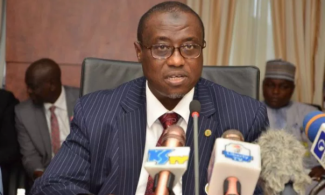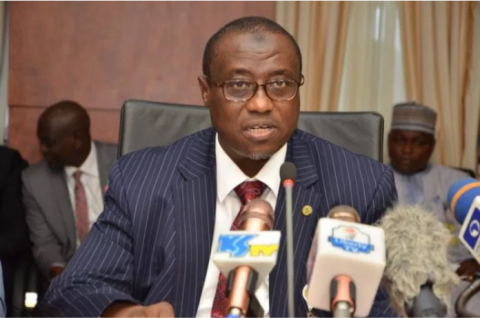
"We have also kicked off the 614km Ajaokuta-Kaduna-Kano (AKK) pipeline project which, on completion, will deliver gas along these areas, thereby generating additional 3600MW to the national grid,” Baru said.

Maikanti Baru, Group Managing Director of the Nigerian National petroleum Corporation (NNPC), says Nigeria will generate 3,600 mw from the Ajaokuta-Kano-Kaduna pipeline once it is completed.
His last official visit to the US, where he currently is, was for the Offshore Technology Conference, where he said amongst other things that Nigeria would attract $25billion to its gas sector in the next 10 years. This time, he says all the country’s power plants are connected to gas supplies.
What he failed to mention is the stability of the gas supply. The advisory power team in the office of the Vice President said on Saturday that the non-availability of gas cost the country over 3,500.
Speaking at the World Gas Conference (WGC), under the theme ‘Fuelling the Future', Baru said: "Nigeria had completed and commissioned about 600km of new gas pipelines, thereby connecting all existing power plants to permanent gas supply pipelines.
"We have also kicked off the 614km Ajaokuta-Kaduna-Kano (AKK) pipeline project, which, on completion, will deliver gas along these areas, thereby generating additional 3,600MW to the national grid."
A statement released by NNPC’s Group General Manager, Public Affairs, Mr. Ndu Ughamadu also quoted Baru as saying the country had reduced gas flaring from 25 to 10 per cent, and that the government was on the verge of finishing its construction of the strategic Obiafo-Obirikon-Oben (OB-3-East-West) interconnection gas pipeline and doubling the capacity of the existing Escravos to Lagos Pipeline (Western Pipeline System).
He disclosed that the government gas policy was focused on monetising and utilising gas rather than flaring it.
He expressed the view that gas is the major power fuelling the globe, positioning the natural resource as an economic booster.
“We are focused on jumpstarting and sustaining gas supply to support a rapid growth in power generation, re-positioning Nigeria as the regional hub for gas-based industries such as fertiliser, petrochemicals, methanol, Liquefied Petroleum Gas (LPG), as well as leveraging our enormous reserves position to strengthen our footprints in high value gas export through LNG and regional gas pipelines,” he noted.
While putting the country’s gas reserves at 199 trillion cubic feet, he disclosed that the country wants to position itself to earn 10 per cent of the world’s liquefied Natural Gas market.
Baru explained that a three-pronged reform had been designed to catalyse the country’s gas market. The policy initiative includes a domestic gas supply obligation, gas pricing policy and regulation and a gas infrastructure blueprint. He also said the Nigeria Motoko Gas Pipeline Project will foster regional economic integration, reduce desertification, and enable accelerated regional electrification.
WGC is a triennial event that was started in 1931 by the International Gas Union.